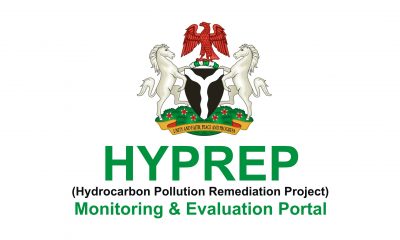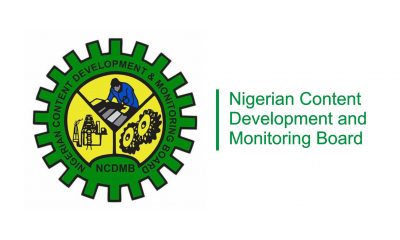Opinion
Making Good Governance Tour Relevant
A common adage has it that when a dog is marked for slaughter, several ugly names would be accorded it. Nigeria is a fertile ground for fabulous opportunities, possibilities, formulations and fabrications of the good, bad and ugly. A place where anything can go under any guise, nomenclature and nobody cares. (Nothing dey happen). Nigeria we hail thee and I sincerely hail thee!
In governance, this characteristic has made government at all levels in the country to jump up even from slumber and put up policies, programmes and formulations, weightless on the scale of preference and got nothing to bear on the overall interest of the common people. The end product or outcome of this is usually countless and colossal waste of national, state and local government resources on abandoned, uncompleted and irrelevant projects that are littered all around the country. This is unhealthy for thousands of Nigerians out there who are helplessly caught up in the ill-fated web of economic strangulation.
This is why the Good Governance Tour by the present administration by Labaran Maku, the Information Minister, is viewed with skepticism as another political jamboree. It is crystally and fundamentally clear that Nigerians are perfect in clumsy specifications, ambiguous policy formulations and corrupt practices, especially the government. Millions of policies are gazetted every day without proper implementation and sustainability.
If we may ask Maku’s team these few question: what kind of parametres are they using to measure the project? How many local people who are supposed to be beneficiaries of such acclaimed projects that are there are given the opportunity to testify? Are the assessment of the quality and quantity of the projects commensurable with the revenue allocation and Internally Generated Revenue accruing to the respective States? What shall be the outcome of the exercise in terms of failure and success of a State? What other criteria are used to ascertain the viability of the project? We are masters of our fate and custodians of our God given and hard earned resources.
Maku’s led team should understand that governance is not about a window display of wears as though in the market place, nor about eloquent words and speeches that captivate peoples minds. Governance is the act of managing a commonwealth. As the custodian of the people’s wealth and chief servant, government should give more priority to peoples’ well-being above freaky show of self-aggrandizement. Every position of trust is accompanied with the golden rule of delivering successfully and meeting the aspirations of the people. The realisation of this reality will naturally spur every leader to play by the rule. So, by this ethos, no leader will believe in measuring up his or her performance in the scale of presidential assessment. Service delivery will ever remain a task that must be achieved.
Apparently, the good governance team has done a good job, by saying what they have to say to justify the colossal sum of tax-payer’s money expended on them. What we sincerely solicit from the honourable team is that findings or result should not be discarded in another well-prepared waste bin as usual. Whoever is guilty should be made to pay the price for a little proof of sincerity in our government.
The act of turning national assignment into a money spinner and as a bargaining power in robbing Peter to pay Paul does not portray us in better light, it exposes our ugly fangs of flaccidity and makes us more vulnerable for global laughter. He who the cap fits should only wear it.
Tordee, a social commentator, resides in Port Harcourt.
Manson B. Tordee
Opinion
Why Reduce Cut-Off Mark for C.O.E ?
Opinion
Welcome! Worthy Future For R/S
Opinion
Restoring Order, Delivering Good Governance
The political atmosphere in Rivers State has been anything but calm in 2025. Yet, a rare moment of unity was witnessed on Saturday, June 28, when Governor Siminalayi Fubara and Minister of the Federal Capital Territory, Chief Nyesom Wike, appeared side by side at the funeral of Elder Temple Omezurike Onuoha, Wike’s late uncle. What could have passed for a routine condolence visit evolved into a significant political statement—a symbolic show of reconciliation in a state bruised by deep political strife.
The funeral, attended by dignitaries from across the nation, was more than a moment of shared grief. It became the public reflection of a private peace accord reached earlier at the Presidential Villa in Abuja. There, President Bola Ahmed Tinubu brought together Governor Fubara, Minister Wike, the suspended Speaker of the Rivers State House of Assembly, Martin Amaewhule, and other lawmakers to chart a new path forward.
For Rivers people, that truce is a beacon of hope. But they are not content with photo opportunities and promises. What they demand now is the immediate lifting of the state of emergency declared in March 2025, and the unconditional reinstatement of Governor Fubara, Deputy Governor Dr. Ngozi Odu, and all suspended lawmakers. They insist on the restoration of their democratic mandate.
President Tinubu’s decision to suspend the entire structure of Rivers State’s elected leadership and appoint a sole administrator was a drastic response to a deepening political crisis. While it may have prevented a complete breakdown in governance, it also robbed the people of their voice. That silence must now end.
The administrator, retired naval chief Ibok-Ette Ibas, has managed a caretaker role. But Rivers State cannot thrive under unelected stewardship. Democracy must return—not partially, not symbolically, but fully. President Tinubu has to ensure that the people’s will, expressed through the ballot, is restored in word and deed.
Governor Fubara, who will complete his six-month suspension by September, was elected to serve the people of Rivers, not to be sidelined by political intrigues. His return should not be ceremonial. It should come with the full powers and authority vested in him by the constitution and the mandate of Rivers citizens.
The people’s frustration is understandable. At the heart of the political crisis was a power tussle between loyalists of Fubara and those of Wike. Institutions, particularly the State House of Assembly, became battlegrounds. Attempts were made to impeach Fubara. The situation deteriorated into a full-blown crisis, and governance was nearly brought to its knees.
But the tide must now turn. With the Senate’s approval of a record ?1.485 trillion budget for Rivers State for 2025, a new opportunity has emerged. This budget is not just a fiscal document—it is a blueprint for transformation, allocating ?1.077 trillion for capital projects alone. Yet, without the governor’s reinstatement, its execution remains in doubt.
It is Governor Fubara, and only him, who possesses the people’s mandate to execute this ambitious budget. It is time for him to return to duty with vigor, responsibility, and a renewed sense of urgency. The people expect delivery—on roads, hospitals, schools, and job creation.
Rivers civil servants, recovering from neglect and under appreciation, should also continue to be a top priority. Fubara should continue to ensure timely payment of salaries, address pension issues, and create a more effective, motivated public workforce. This is how governance becomes real in people’s lives.
The “Rivers First” mantra with which Fubara campaigned is now being tested. That slogan should become policy. It must inform every appointment, every contract, every budget decision, and every reform. It must reflect the needs and aspirations of the ordinary Rivers person—not political patrons or vested interests.
Beyond infrastructure and administration, political healing is essential. Governor Fubara and Minister Wike must go beyond temporary peace. They should actively unite their camps and followers to form one strong political family. The future of Rivers cannot be built on division.
Political appointments, both at the Federal and State levels, must reflect a spirit of fairness, tolerance, and inclusivity. The days of political vendettas and exclusive lists must end. Every ethnic group, every gender, and every generation must feel included in the new Rivers project.
Rivers is too diverse to be governed by one faction. Lasting peace can only be built on concessions, maturity, and equity. The people are watching to see if the peace deal will lead to deeper understanding or simply paper over cracks in an already fragile political arrangement.
Wike, now a national figure as Minister of the FCT, has a responsibility to rise above the local fray and support the development of Rivers State. His influence should bring federal attention and investment to the state, not political interference or division.
Likewise, Fubara should lead with restraint, humility, and a focus on service delivery. His return should not be marked by revenge or political purges but by inclusive leadership that welcomes even former adversaries into the process of rebuilding the state.
“The people are no longer interested in power struggles. They want light in their streets, drugs in their hospitals, teachers in their classrooms, and jobs for their children. The politics of ego and entitlement have to give way to governance with purpose.
The appearance of both leaders at the funeral was a glimpse of what unity could look like. That moment should now evolve into a movement-one that prioritizes Rivers State over every personal ambition. Let it be the beginning of true reconciliation and progress.
As September draws near, the Federal government should act decisively to end the state of emergency and reinstate all suspended officials. Rivers State must return to constitutional order and normal democratic processes. This is the minimum requirement of good governance.
The crisis in Rivers has dragged on for too long. The truce is a step forward, but much more is needed. Reinstating Governor Fubara, implementing the ?1.485 trillion budget, and uniting political factions are now the urgent tasks ahead. Rivers people have suffered enough. It is time to restore leadership, rebuild trust, and finally put Rivers first.
By: Amieyeofori Ibim
Amieyeofori Ibim is former Editor of The Tide Newspapers, political analyst and public affairs commentator
-
Politics1 day ago
Natasha’s Counsel Writes Senate Over Court Judgment
-
Nation1 day ago
NIPR Practitioners Urge To Go Beyond Traditional Media Relations To Strategic Leadership Functions
-
Politics1 day ago
Bayelsa APC Hails Late Buhari As Change Agent In Nigerian Politics
-
News1 day ago
South-South contributes N34trn to Nigeria’s economy in 2024 – Institute
-
Niger Delta1 day ago
Police Rescue Kidnap Victim, Recover Pistol In A’Ibom
-

 Politics1 day ago
Politics1 day agoINEC Trains Political Parties Officials On ICNP Use Ahead By-Elections
-

 Business1 day ago
Business1 day agoReplace Nipa Palms With Mangroove In Ogoni, Group Urges FG, HYPREP
-

 Business1 day ago
Business1 day agoNCDMB, Dangote Refinery Unveil JTC On Deepening Local Content

